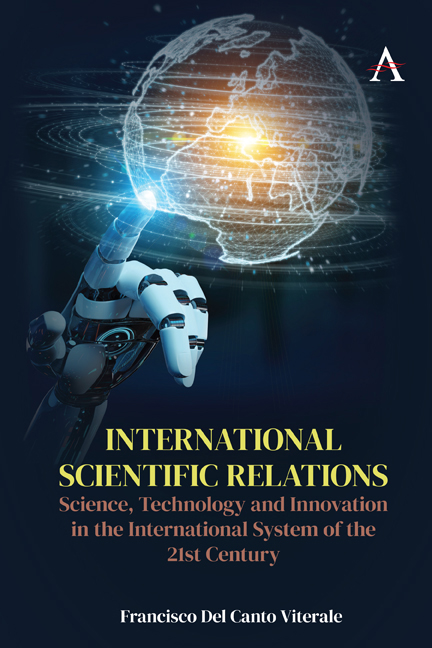 International Scientific Relations
International Scientific Relations 9 - International Scientific Relations and the International System
Published online by Cambridge University Press: 08 October 2021
Summary
After the in-depth analysis of the new roles played by knowledge in the current international system (Chapter 7) and studying the main characteristics of the current global configuration of ISR (Chapter 8), the last thing to do is to identify the main interactions and the mutual impact established between ISR and the international system. The goal is to examine how ISR, understood as a specific field or subsystem in international relations, links with other subsystems and with the international system as a whole.
The use of the systemic methodology has allowed us up to this point to analyze ISR as a dynamic and complex system whose parts interact between themselves, develop internal processes, and conceive new emerging realities that end up characterizing the system as a whole. However, the same systemic perspective allows us to go further with the analysis through positioning ISR within a wider system (the international system) that contains it and conditions it and where, at the same time, it interacts with other subsystems such as the economic, political or social systems. This allows us to see how ISR links with the other subsystems that form its environment, as well as to discover how it interacts with the international system as a whole.
Within this conceptual and methodological framework, this last chapter seeks to answer three fundamental questions:
(i) How does ISR interact with other
(ii) What are the most relevant trends generated by ISR and how do they feed back into the international system?
(iii) What impact does ISR have on the 21st-century World Order?
The main goal behind these questions is to identify the main demands that ISR receives from other subsystems and know their answers; to understand how these demands are processed within ISR and how they become trends that affect the international system as a whole; and, lastly, to recognize the impact ISR has on the world order that is forming at the beginning of the 21st century.
Interactions with other Subsystems
The first question to be answered concerns the interactions established between ISR and other subsystems in the world order.
- Type
- Chapter
- Information
- International Scientific RelationsScience, Technology and Innovation in the International System of the 21st Century, pp. 211 - 222Publisher: Anthem PressPrint publication year: 2021
